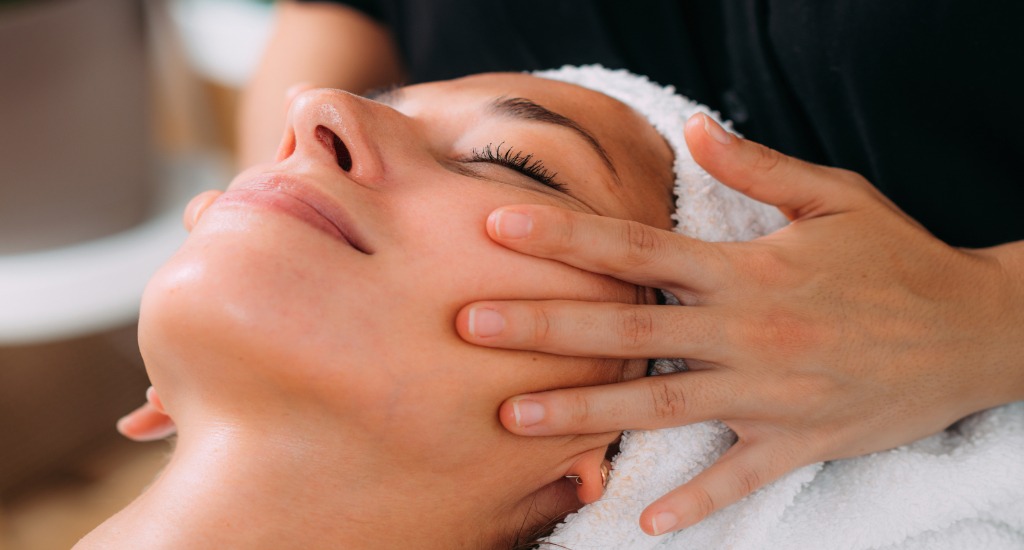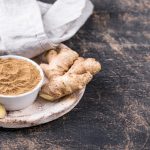The human skin is the largest organ of the body with a total area of about 20 square feet. Initially, it was considered a simple organ with its function being only covering the important visceral organs. But in the last few decades, multiple functions of the skin have been discovered. These include the most important function of covering the body and thus preventing multiple microbial infections and physical trauma. This role can be best understood in a burn patient where the protection of the skin is disturbed and the patient is vulnerable to multiple infections and skin disease. The other important roles of the skin are:
- Keratinocytes are skin cells that are glued together tightly thus forming a tough physical barrier. These cells also secrete soluble molecules like cytokines and defenses that elicit immune responses and save the body from local infections.
- Melanocytes are skin cells responsible for the production of the colored pigment, melanin. This pigment absorbs the harmful UV rays of the sun thus protecting the body from its adverse effects.
- Dendritic cells are responsible for eliciting immune responses. They trap the microbes and transport them to the regional lymph nodes where T lymphocytes help in developing adaptive immunity.
- Lymphocytes are cells that spring into action following the activation of the dendritic cells. With proper feedback mechanisms, these cells help in mediating immune responses.
- Skin harbors a lot of normal microorganisms that prevent the harmful microbes from latching onto the skin. This helps in preventing infections.
- Receptors on the skin help in perceiving different kinds of stimuli which range from pleasurable to painful and include touch, vibration, itchiness, heat, and cold.
- Sweat glands and hair follicles help in controlling temperature variations and harbor stem cells that help in cell regeneration, respectively.
Skin diseases are problems manifested due to problems in the delicate balance of all the above functions. Skin disease treatment in Ayurveda focuses on personalized treatment treating each individual differently based on body composition and the nature of his/her body. Online Ayurvedic doctors consultations have proved like a blessing in these tough times as more and more people have understood the importance of this long tried and tested system of medicine and lockdowns have forced them to stay indoors. By consulting an Ayurvedic doctor online, one can get a fair amount of idea of at least what can be avoided in the normal lifestyle and what can be adopted to prevent the aggravation of diseases. It is also possible that the doctor can diagnose the disease to a great extent and send the requisite medicines. This way the patient can get treatment by not stepping foot outside his/her house.
What is a skin disease?
Perturbations leading to a homeostatic imbalance in the skin can lead to various problems which include wrinkles and hair loss, blisters and rashes, life-threatening cancers, and disorders of immune regulation. The skin can develop problems both through external and internal factors. One of the most important external factors is long-term exposure to sunlight which can cause premature aging, blunted immunological responses to environmental antigens, and favors the development of premalignant and malignant neoplasms. Internal factors may include systemic disorders such as diabetes mellitus, amyloidosis, and lupus erythematosus and can have important manifestations on the skin. Skin diseases can thus develop due to innumerable reasons. Common skin diseases include those caused by allergies like urticarial or the ones like eczema, scabies, acne and pimples, psoriasis, etc.
Ayurveda is an ancient medical discipline practiced in India for almost 5000 years. Unlike the allopathic system of medicine, Ayurveda focuses on treating the root cause of the disease and not just providing symptomatic relief. Ayurveda tries to understand the composition of an individual based on doshas that are well defined in the literature. For the same disease, Ayurveda treatment differs from person to person based on the individual body makeup. Many chronic skin diseases that are not treated by Allopathy are treated successfully by Ayurveda. Thanks to the latest technology, Ayurveda online consultations are now possible to provide relief to patients, especially the ones that are old or non-ambulatory.
Types of skin diseases and their treatment in Ayurveda
Skin diseases are very common and affect a large number of people every year. Depending on the cells involved and the pathogenesis, different types of skin diseases are:
- Freckles also called ephelis
- Melanocytic nevus also called mole
- Dysplastic nevi
- Melanoma, a deadly skin cancer
- Seborrheic keratosis
- Acanthosis nigricans
- Actinic keratosis
- Basal cell carcinoma
- Dermatofibroma
- Mycosis fungoides
- Icthyosis
- Urticaria
- Eczematous dermatitis
- Erythema multiforme
- Psoriasis
- Seborrheic dermatitis
- Lichen planus
- Pemphigus
- Bullous pemphigoid
- Acne
- Scabies caused by termite bite
- Rosacea
- Infections which include
- Warts
- Molluscum contagiosum
- Impetigo
- Fungal infections like Tinea pedis, Tinea capitis, etc.
Ayurvedic treatment for skin diseases is now preferred by many due to its natural healing and benefits, especially for chronic diseases.
Acne:
It is a skin disease caused by the plugging of hair follicles with oil and dead skin cells. It is divided into non-inflammatory and inflammatory components but usually these two coexist. Open and closed comedones may be formed in non-inflammatory acne. The common manifestations of acne are whiteheads, blackheads, or pimples. It is common among teenagers but can affect them at any age. Acne treatments are highly preferred by people solving chronic skin issues.
Causes of acne:
The development of acne is not properly understood but the usual causes of acne include:
- Excess oil production due to the increased size of sebaceous glands that produce them. This usually occurs under the influence of androgens and hence is common in teenage years.
- Hair follicles are clogged by oil and dead skin cells.
- Bacterial infection by the bacteria Propionibacterium acnes. Inflammation of the involved follicle.
Hormonal acne refers to the acne that develops in response to increased androgen production during puberty but it can affect at any age. Hormonal acne symptoms usually develops in women and it includes:
- During puberty, hormonal acne affects the T zone which includes the forehead, nose, and chin.
- Hormonal adult acne usually forms on the lower part of the face and includes whiteheads, blackheads and pimples that come to the head, and cysts.
- Hormonal acne can be caused by fluctuations in hormone production which can occur in
- Menstruation
- Polycystic ovarian syndrome
- Menopause
- Increased androgen levels
- These hormonal fluctuations aggravate acne issues by increasing
- Skin inflammation
- Oil (sebum) production
- Clogging of skin cells in hair follicles
- Infection by Propionobacterium acnes
Symptoms of acne:
The main symptom of acne, medically known as acne vulgaris, is the formation of comedones. A comedone can be closed (whitehead) or open (blackhead). Closed comedones appear as small white papules which accentuate when the skin stretches. They usually precede the inflammatory lesions and their contents are usually not easily expressed. Open comedones usually do not cause inflammatory acne lesions and are characterized by large dilated follicular orifice which is filled with easily expressible oxidized, darkened, oily debris. These comedones are usually accompanied by inflammatory lesions called papules, pustules, or nodules.
What causes pimples? Pimples are a part of acne and are characterized by swollen, red lesions filled with pus. When the plugged follicle gets infected, the pimple starts developing. Although acne usually covers the face, it can spread to the chest and back. It usually remains mild but some individuals might develop nodules or cysts that can lead to significant scarring. Acne can impact the quality of life of an individual to a great extent.
Ayurvedic treatment of acne:
You can use variety of products to get the right Ayurvedic treatment for acne like:
- capsules containing extracts of the neem tree (Azadirachta indica),
- tablets containing gandhak rasayan for topical application,
- capsules containing Manjistha taken by mouth,
- topical application of Nirgundi oil,
- extracts of tea tree for topical applications,
- topical application of tulsi paste,
- topical application of lemon and honey mixture,
- topical application of dry cinnamon powder with honey on the affected areas,
- topical application of paste made of soaked sesame seeds,
- topical application of potato juice
- topical application of mint leaves paste
- topical application of dried nutmeg powder with water
- topical application of clove oil
- topical application of moringa leaves paste
These are some of the treatments that Ayurveda offers and can be used by anyone. Some treatments may be specific to the individual according to the specific body makeup and can be decided by a qualified Ayurvedic expert. Ayurveda online consultation can help one to seek better treatment for their problems as the doctor can advise the patient based on specific problems.
Psoriasis:
What is the meaning of Psoriasis? Psoriasis is an autoimmune disease in which there is an overproduction of keratinocytes than needed and hence results in the characteristic lesions observed in patients. Psoriatic lesions can be caused in susceptible individuals by local trauma presumably because the trauma sets in motion a local inflammatory response that becomes self-perpetuating. This phenomenon is known as Koebner phenomenon.
There are five official types of psoriasis. These are:
- plaque psoriasis
- guttate psoriasis
- inverse psoriasis
- pustular psoriasis
- erythodermic psoriasis
- nail psoriasis
- psoriatic arthritis
Causes of psoriasis:
The main psoriasis cause is the immunity turned against the individual termed autoimmunity. More than the required amount of keratinocytes are produced resulting in characteristic scaly lesions. Psoriasis in susceptible individuals can be triggered by several factors. Some of these include:
- infections such as strep throat or skin infections
- cold and dry weather
- trauma to the skin leading to Koebner phenomenon
- active or passive smoking
- heavy alcohol intake
- certain medications
- rapid withdrawal of oral or systemic corticosteroids
The other risk factors include:
- family history of having psoriasis
- stress as it impacts the immune system
Symptoms of psoriasis:
Symptoms of psoriasis may vary from person to person and may include:
- red patches with thick silvery scales which ranges from a few spots to large areas of scaly patches
- small scaly spots are usually seen in children
- dry, itchy, cracked skin which may be accompanied by bleeding
- itchy and painful lesions
- thick pitted and ridged nails
- swollen joints with stiffness
Ayurvedic treatment of psoriasis:
Ayurvedic treatment focuses on the overall health of an individual. The Ayurvedic treatment for psoriasis includes meditation to relieve oneself from stress, dietary changes, and the application of topical solutions. These solutions are usually made of:
- aloe vera
- black nightshade
- Boswellia or frankincense
- Garlic
- Guggul
- Jasmine flower
- Neem
Aloe vera topical treatment is advised to reduce itchiness. An online Ayurveda doctor can help you choose the right combination of food and medications to achieve the best results.
Eczema:
Eczema meaning a group of skin conditions that make the skin inflamed or irritated. The classical finding is spongiosis which refers to the intercellular edema of the epidermis. Eczema is a type of dermatitis and these terms are often used interchangeably.
Causes of eczema:
Causes of eczema are not known but the following are thought to cause it:
- Immune system response to an antigen
- The problem in the skin barrier so that moisture is lost and germs enter
- A family history of asthma
The causes are sometimes divided into inside and outside jobs. Outside jobs include external factors like the one caused by the application of poison ivy and inside jobs include immune response mounted to an internally circulating antigen which may be derived from certain foods or drugs.
Symptoms of eczema:
The symptoms of eczema can vary and also flare-ups can occur in different areas. But no matter where it affects, eczematous patches are always itchy. The itching sometimes precedes the actual rash. The skin may also look red, itchy, cracked, and leathery. The symptoms can also vary depending on the age of the affected individual. For example, symptoms in infants are an itchy rash which can lead to an oozing, crusting condition, mainly on the face and the scalp; in children the rash usually develops in the bends of the elbows, behind the knees, on the neck, or on the wrists or ankles; in adults, the rash usually develops on the face, back of the knees, wrists, hands or feet.
Ayurvedic treatment of eczema:
Ayurvedic treatment for skin disease eczema may include:
- Panchkarma therapy
- Herbal remedies include:
- Cardamom
- Turmeric
- Triphala
- Neem
- Indian sarsaparilla
- Stress-relieving herbs like kava, winter cherry, and Brahmi
- Dietary changes which include consumption of foods high in
- essential fatty acids
- zinc
- Vitamins A and C
- Topical remedies include
- Oatmeal bath
- Coconut oil
- Hempseed oil
- Sunflower oil
- Witch hazel
- Aloe vera gel
- Stress management techniques include
- Deep breathing techniques
- Guided imagery
- Journaling
- Massage
- Meditation
- Music or art therapy
- Stretching
- Tai chi
- Walking and yoga
An Ayurveda doctor online can help you choose the right combination of food and medications to achieve the best results.
Scabies:
Scabies meaning, an intensely itchy rash caused by the bite of the termite Sarcoptes scabiei. It is a highly contagious disease. The most common symptoms include severe itchiness and a pimple-like Scabies rash. The mite burrows into the skin and forms a typical rash.
Causes of scabies:
Causes of scabies are a bite by the termite Sarcoptes scabiei or getting infected from an already affected individual.
Symptoms of scabies:
Scabies symptoms include the following:
- Itchy red papules with itching more severe at night
- The usual sites of rashes are palms and soles, wrists and axilla, umbilicus, and in between web spaces
- Itchy nodules or lumps in the armpits and groin are highly suggestive of scabies
- Skin burrows which might be linear or curved might be observed. The mites live in these burrows
Ayurvedic treatment of scabies:
There are effective Ayurvedic treatments for scabies. Oils can be used and also medicines are available for oral ingestion. Common Ayurvedic oils and creams used for the treatment of scabies are:
- Mahamaricha taila application is effective in dry scabies
- Tankana bhasma powder dusting shows very good results in pustular scabies
- Sindooradya malahara, Gandhakadya malahara, and Jasadamruta malahara are effective against both types of scabies
- Rasottamadi lep is very effective in severe cases but should be avoided in case there are bleeding lesions at the site of scabies
Common Ayurvedic medicines used for the treatment of scabies are:
- Gandhaka rasayana
- Arogyavardhini vati
- Mahamanjishtadi kashaya
- Khadirarishta
- Mahatiktaka kashaya
- Rasamanikya
- Aragwadhadi Kashaya
Consulting an online Ayurveda doctor who can help to clear the doubts and choose the best available treatment based on one’s body makeup.
MediFlam: Consult top Ayurveda doctors online:
MediFlam has created a secure platform where patients can get appointments with some of the best Ayurvedic practitioners online. MediFlam has great respect and faith in this ancient traditional system of medicine, to which now some of the most advanced countries are looking for curing chronic diseases like diabetes, hypertension, and skin diseases for which allopathic medicines have only symptomatic relief and no cure. The people at MediFlam have gone to great lengths to offer the best possible online Ayurvedic doctors consultation and cure for their diseases from the comfort of their homes.














